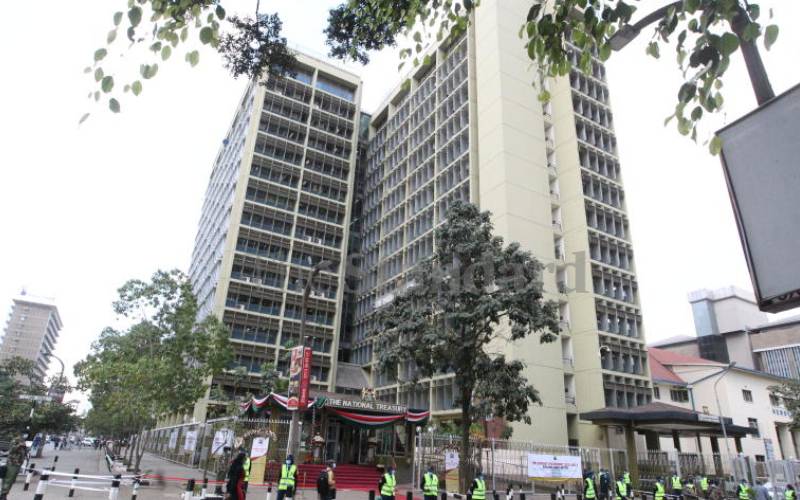
Government’s ability to collect over Sh28 billion in loans advanced to various parastatals appears in doubt, with some loans outstanding for years. This is even as the government makes little effort in loan recovery with concerns that some debts could be written off.
The Auditor-General says while the debts have been outstanding for years, the National Treasury has not made serious attempts to recover the money.
In a new audit report for the national government for the year to June 2020, the Auditor General casts doubt on whether the State will ever recover the debts advanced to 17 State-owned entities, some ailing and in dire need of bailout.
The audit shows Treasury had not proactively tried to recover the debts - raising possibility that the loans could be written off, with the taxpayer paying dearly.
Different State firms owe the government Sh867 billion, with the 17 companies not servicing their loans accounting for Sh28.27 billion or 3.3 per cent of the loans.
“As previously reported, the loans had no movements during the year and have remained unpaid over a significant period casting doubt on their recoverability,” noted Auditor General Nancy Gathungu. “No evidence of the measures taken by management to recover the outstanding amounts were provided, casting doubts on the recoverability of the loans.”
Some of the entities that owe the State and have not been servicing their loans include; Coast Water Services Board, which has an unpaid loan of Sh6.76 billion, Tanathi Water Services Board (Sh4.38 billion), Mumias Sugar (Sh3 billion) and Lake Victoria North Water Services Board (Sh2.68 billion). Others are Lake Victoria South Water Services Board (Sh2.03 billion), Tana Water Services Board (Sh1.85 billion) and Uchumi (Sh1.2 billion).
The Auditor-General also gave an adverse audit opinion to the Government Investment and Public Enterprises (GIPE) Management, a department within Treasury that oversights State corporations. She questioned how the entity has been playing its oversight role, including loans advanced to parastatals.
“The GIPE Management has not been able to confirm its active role in the management of existing loan portfolio and issuance of new loans through the annual work plans and periodic monitoring and evaluation reports,” said the Auditor General.
“In the absence of budgets, annual work plans, assessment or evaluation and performance reports of the loan portfolios, propriety on utilisation of public funds could not be ascertained. There is also the risk of non-servicing of the loans leading to continued write-offs as bad debts which is a cost to the public.”
Concerns of some parastatals being unable to pay their debts to the government come as the International Monetary Fund pushes for their restructuring in the 38-month programme that is expected to help Kenya increase its taxes and contain its expenditures.
Several fledgling parastatals will also be restructured in what is likely to result in job losses reminiscent of the 1990s-style structural adjustment programmes.
While GIPE, in its financial statement said outstanding loans to State entities stood at Sh867 billion, the audit report noted discrepancies in the department’s record and those of the parastatals.
Among these include loans to KenGen, where the Treasury GIPE department overstated the total outstanding loan by Sh27.26 billion at Sh115.61 billion while the power producer confirmed its balance at Sh88.35 billion. This led the auditor general to conclude that the outstanding loans of Sh867 billion could not be ascertained.




No comments :
Post a Comment